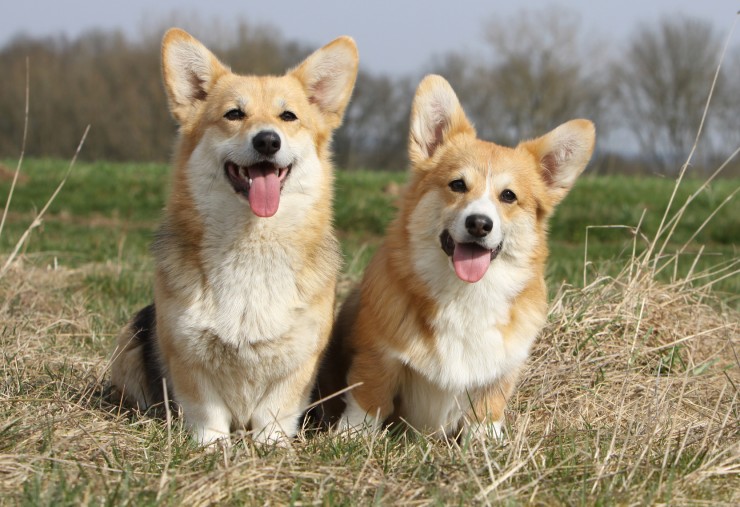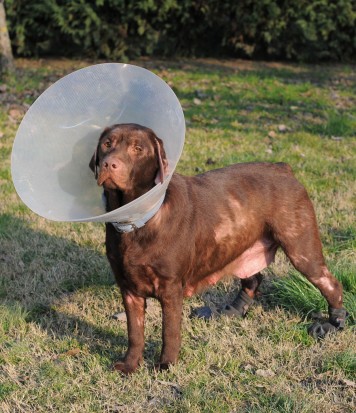
Vaccination and its Important Role in a Dog’s Life
Active immunization is the introduction into the body of killed
or satisfied microorganisms or their products for the purpose of
stimulating the body’s defense mechanism. This concept is also
applicable to other species like the dogs.
Historically the area of veterinary medicine had not yet
realized the potential benefits of vaccinations. It hasn’t been
until recently, that veterinary experts formulated certain
solutions so as to combat the alarming increase of death in
digs. Namely, most of the causes are viral infection.
With the inception of vaccinations, many dogs were saved from
probable death brought about by many diseases like
leptospirosis, hepatitis, upper respiratory infections, and
parvovirus.
Like humans, dogs need vaccinations even at an early age. That
is why it is important to immunize puppies so that they will
survive until they are fully grown.
Basically, puppies get their immunity from their mother’s milk,
which is also the same as that of human beings. However, these
immunities tend to lose their effects by the time the puppies
are already 6 to 20 weeks old. It is during this time that they
have to be immunized.
Hence, in order to protect the puppies against infectious
diseases, it is best to give them their shots and they should be
re-immunized after 3 to 4 weeks. In this way, the puppies will
be able to endure any infectious disease that may come their way.
Rabies and Immunization
Rabies is an acute and almost invariably fatal disease
communicated to man through the saliva of a rabid animal,
usually dogs, foxes, squirrels, and bats.
Dogs, fortunately, always present evidence of the disease before
becoming infective. The etiologic agent is an ultramicroscopic
virus present in the saliva and the central nervous system.
The course of rabies in dogs is characterized by an incubation
period of 20 to 30 days. This is followed by a period of
excitement, when the animal becomes vicious. The excitement
stage may be evident at all or may be entirely absent. Paralysis
then develops, first involving the hind legs and thereafter
becoming general. Death occurs within 10 days following the
first symptom.
Alternatively, the effects of rabies in human beings can be
fatal as it is with dogs. Hence, in order to avoid these
problems, it is best to have your dogs vaccinated with
anti-rabies shots.
Rabies vaccines can be given during the 16th to the 26th week of
the puppies. This requires a follow up shot one year after for
total protection.
On the other hand, dog owners should take note that not all
vaccinations will generate adverse effects on their dogs. So, it
is best to always observe your dog after vaccination. When
certain reactions occur like vomiting, facial swelling, or
trembling, it is best to discuss these matters immediately with
your veterinarian.
Moreover, certain precautions should also be made when the age
of the dogs are taken into consideration. For some guides
regarding this matter, here are some tips:
1. The age of puppies
It is best to consider the puppies age before subjecting them to
their shots.
For puppies that are 4 to 20 weeks old, their first shots should
be given during their 6th to 8th weeks of age. The last shots
shall be given on the 14th to 16th week of age. These date apply
to all primary vaccines.
For rabies, puppies should be 16 to 26 weeks old.
2. For dogs that are 20 weeks old up to 2 years old
During this age, dogs should have received their booster shots
already. This is essential so as to lengthen the immunity of the
vaccines in the dog’s system. At this stage, additional vaccines
are recommended for added protection such as vaccines against
bordetella and other newer vaccines.
3. For dogs that are older than 2 years
By this time, the dogs should have been through with their
booster shots. What comes next is the annual revaccination.
These kinds of vaccines are still recommended so as to lengthen
their protection against certain diseases.
The bottom line is that vaccinations are extremely important to
your dog’s life. Like the way it functions in human beings,
vaccines are needed in order to protect the dogs from imminent
risk of acquiring diseases brought about by viruses.
With dog vaccines, you can be assured that your dog will be at
its peak of health for a longer period of time, free from any
life-threatening diseases. Indeed, with vaccines every life is
lengthened.
 Five Pertinent Questions To Ask The Dog Breeders You May Be Considering Buying From
Five Pertinent Qu
Five Pertinent Questions To Ask The Dog Breeders You May Be Considering Buying From
Five Pertinent Qu
 Dog Breeds: Grooming A Sheltie
There are standard guidelines for grooming any thick-coa
Dog Breeds: Grooming A Sheltie
There are standard guidelines for grooming any thick-coa
 Bedding Material to be Used over the Flooring of your Chicken Coops
Bedding Material to be Used over the Flooring of your Chic
Bedding Material to be Used over the Flooring of your Chicken Coops
Bedding Material to be Used over the Flooring of your Chic
 Dermatitis In Dogs
Dermatitis In Dog
Dermatitis In Dogs
Dermatitis In Dog
 Hyperadrenocorticism Or Cushing’s Syndrome In Cats
Hyperadrenocortic
Hyperadrenocorticism Or Cushing’s Syndrome In Cats
Hyperadrenocortic
Copyright © 2005-2016 Pet Information All Rights Reserved
Contact us: www162date@outlook.com